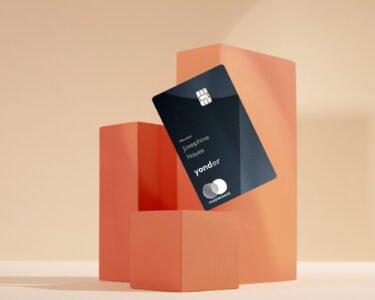Lenders look at your credit score to decide whether to approve you and at what rate to lend you money. To make lending decisions easier, financial institutions categorize borrowers into categories based on their credit scores.
If you have a FICO credit score, you may know that those scores are grouped into five categories: poor, fair, good, very good and exceptional.
But there’s another taxonomy, one used to describe where someone stands in comparison to borrowers who qualify for the best — or “prime” — interest rates.
Credit scores are organized into clusters to give consumers a good idea of their borrowing power. Institutions may group scores differently, however.
FICO, the best known, organizes its credit scores into five ranges.
The Consumer Financial Protection Bureau (CFPB) looks at scores compared to prime.
- Super-prime: 720 or above
- Prime: 660 and 719
- Near prime: 620 and 659
- Subprime: 580 and 619
- Deep subprime: Below 580
Experian, one of the leading credit reporting bureaus, also looks at prime scores but it groups scores differently.
- Super-prime: 781 to 850
- Prime: 661 to 780
- Nonprime: 601 to 660
- Subprime: 501 to 600
- Deep subprime: 300 to 500
VantageScore, a scoring model founded by the three main credit bureaus as an alternative to FICO scores, organizes credit scores into four ranges:
- Super-prime: Above 780
- Prime: 661-780
- Near prime: 601-660
- Subprime: 300-600
As you can see, having prime credit doesn’t mean you have a perfect credit score, but it does give you a better chance of approval and of getting the best interest rates.
Someone with super-prime credit poses the least amount of risk to a lender. While a prime borrower may have the same odds of being approved, you’ll probably receive a lower interest rate if your score falls into the super-prime category.
“Subprime” refers to borrowers who don’t have a good credit score and to financial products that don’t require one. The specific threshold varies, but a subprime borrower typically has a FICO score below 620.
Super-prime and prime borrowers are more likely to qualify for the best credit cards and receive higher credit limits, lower interest rates and more favorable terms. They’ll have an easier time financing a college education and borrowing for a car or home.
On the other end, subprime and deep subprime borrowers are less likely to qualify for credit cards and more likely to receive much higher interest rates and have to make bigger down payments.
Though a borrower with prime credit has better approval odds, there are credit cards for every category—including consumers with bad credit or no credit history.
Cards for subprime and deep subprime borrowers
If you’re new to credit or working on rebuilding your credit, start with a secured credit card. They don’t require a good credit score, but you will likely need to pay a security deposit that acts as your credit limit.
The Capital One Platinum Secured Credit Card has no annual fee or foreign transaction fee. Your security deposit could be as low as $49 and you could still qualify for a $200 credit limit.
OpenSky® Secured Visa® Credit Card
-
Rewards
New feature! Earn up to 10% cash back on everyday purchases
-
Welcome bonus
-
Annual fee
-
Intro APR
-
Regular APR
-
Balance transfer fee
-
Foreign transaction fee
-
Credit needed
Terms apply. Click here to view the Cardholder Agreement.
- No credit check, even if you have a credit score
- High approval odds
- $35 annual fee
- 3% fee charged on purchases made outside the U.S.
View More
View Less
Cards for near-prime borrowers
If you’re working toward being a prime borrower, there are unsecured cards you could consider.
The Petal® 2 “Cash Back, No Fees” Visa® Credit Card has no annual fee, foreign transaction fee or late fee. You can earn up to 1.5% cash back on eligible purchases after making 12 on-time monthly payments.
Petal® 2 “Cash Back, No Fees” Visa® Credit Card
-
Rewards
1% cash back on eligible purchases right away and up to 1.5% cash back on eligible purchases after making 12 on-time monthly payments; 2% to 10% cash back at select merchants
-
Welcome bonus
-
Annual fee
-
Intro APR
-
Regular APR
18.24% – 32.24% variable
-
Balance transfer fee
-
Foreign transaction fee
-
Credit needed
The Capital One QuicksilverOne Cash Rewards Credit Card earns 1.5% back on every purchase. You can earn a $200 welcome bonus if you spend $500 within three months of account opening, as well as unlimited 5% cash back on hotels and rental cars booked through Capital One Travel.
Capital One QuicksilverOne Cash Rewards Credit Card
-
Rewards
Unlimited 1.5% cash back on every purchase, up to 6 months of complimentary Uber One membership statement credits through 11/14/2024
-
Welcome bonus
-
Annual fee
-
Intro APR
-
Regular APR
-
Balance transfer fee
$0 at the Transfer APR, 4% of the amount of each transferred balance that posts to your account at a promotional APR that Capital One may offer to you
-
Foreign transaction fee
-
Credit needed
Average, Fair, or Limited
Cards for prime borrowers
A good credit score opens the doors to some of the best credit cards. We like the Capital One Venture Rewards Credit Card for its primo travel benefits, including 5 miles for every $1 spent on hotels and rental cars booked through Capital One Travel and 2 miles per $1 spent on all other purchases.
Capital One Venture Rewards Credit Card
-
Rewards
5 Miles per dollar on hotel and rental cars booked through Capital One Travel, 2X miles per dollar on every other purchase
-
Welcome bonus
Enjoy $250 to use on Capital One Travel in your first cardholder year, plus earn 75,000 bonus miles once you spend $4,000 on purchases within the first 3 months from account opening – that’s equal to $1,000 in travel
-
Annual fee
-
Intro APR
N/A for purchases and balance transfers
-
Regular APR
-
Balance transfer fee
$0 at the Transfer APR, 4% of the amount of each transferred balance that posts to your account at a promotional APR that Capital One may offer to you
-
Foreign transaction fee
-
Credit needed
There’s also up to $100 credit for Global Entry or TSA PreCheck every four years, plus airport lounge access, travel insurance and a welcome bonus of 75,000 miles once you spend $4,000 on purchases within the first 3 months of account opening, plus receive a one-time $250 Capital One Travel credit in your first cardholder year – that’s equal to $1,000 in travel
Cards for super-prime borrowers
You don’t need excellent credit to qualify for the best cards, but it can get you the lowest interest rate. The Citi Double Cash® Card is a great cash-back card: Cardholders earn 2% on every purchase — an unlimited 1% cash back when you buy something, plus another 1% when you pay for it.
Citi Double Cash® Card
-
Rewards
Earn 2% on every purchase with unlimited 1% cash back when you buy, plus an additional 1% as you pay for those purchases. To earn cash back, pay at least the minimum due on time. Plus, for a limited time, earn 5% total cash back on hotel, car rentals and attractions booked on the Citi Travel℠ portal through 12/31/24
-
Welcome bonus
Earn $200 cash back after you spend $1,500 on purchases in the first 6 months of account opening. This bonus offer will be fulfilled as 20,000 ThankYou® Points, which can be redeemed for $200 cash back.
-
Annual fee
-
Intro APR
0% for the first 18 months on balance transfers; N/A for purchases
-
Regular APR
-
Balance transfer fee
For balance transfers completed within 4 months of account opening, an intro balance transfer fee of 3% of each transfer ($5 minimum) applies; after that, a balance transfer fee of 5% of each transfer ($5 minimum) applies
-
Foreign transaction fee
-
Credit needed
Read our Citi Double Cash® Card review.
Plus, there’s no annual fee and a welcome bonus of 20,000 ThankYou® Points after you spend $1,500 on purchases in the first six months of account opening that can be redeemed for $200 cash back.
If you have subprime credit or just want to boost your score, there are several ways to do it.
Pay down your bills
Payment history is the biggest slice of your credit score, so chipping away at credit card bills and other revolving debt can raise your score dramatically. Paying off the entire balance each month will have the biggest and fastest impact.
Increase your credit limit
The balance of how much credit you’re utilizing versus your total available credit is another big factor in your credit score. Getting an increase on your current credit card or opening a new card will shrink your credit utilization ratio —. provided you won’t be tempted to spend more.
Check your credit report for errors
Nearly a quarter of Americans have errors on their credit reports—including fraudulent or duplicated charges and misreported payments.
You can get free credit reports from Experian, Equifax and TransUnion, the three major credit bureaus, at AnnualCreditReport.com.
There are more sophisticated credit monitoring programs that can check for errors, protect you from identity theft and more. IdentityForce‘s UltraSecure + Credit plan will alert you about potential fraud on your bank, credit card and investment accounts, as well as the use of your Social Security number, address and other personal data. It also includes a VPN, access to fraud resolution experts and more.
IdentityForce®
-
Cost
UltraSecure Individual: $19.90 per month or $199.90 per year; UltraSecure+Credit Individual: $34.90 per month or $349.90 per year; UltraSecure Family: $24.90 per month or $249.90 per year; UltraSecure+Credit Family: $39.90 per month or $399.90 per year
-
Credit bureaus monitored
3-bureau credit monitoring, alerts and reports: Experian, Equifax and TransUnion®, with UltraSecure+Credit Individual and UltraSecure+Credit Family plans only
-
Credit scoring model used
VantageScore® 3.0, with UltraSecure+Credit Individual and UltraSecure+Credit Family plans only
-
Dark web scan
-
Identity theft insurance
Yes, at least $1 million with all plans
FAQs
What is a subprime credit score?
The exact score that qualifies as subprime varies: For the Consumer Financial Protection Bureau it’s anything below 620, while Experian considers it 600 and below. Lenders consider subprime credit scores a higher risk and you’ll find it harder to get approved for credit cards and loans.
What is the average FICO credit score?
What does it mean if I have prime credit?
Having a prime credit score means lenders consider you creditworthy and you’re more likely to be approved for and get favorable terms for credit cards, loans and other financial products. The Consumer Financial Protection Bureau classifies a FICO score between 660 and 719 as prime.
At CNBC Select, our mission is to provide our readers with high-quality service journalism and comprehensive consumer advice so they can make informed decisions with their money. Every personal finance article is based on rigorous reporting by our team of expert writers and editors with extensive knowledge of personal finance. While CNBC Select earns a commission from affiliate partners on many offers and links, we create all our content without input from our commercial team or any outside third parties, and we pride ourselves on our journalistic standards and ethics.
Catch up on CNBC Select’s in-depth coverage of credit cards, banking and money, and follow us on TikTok, Facebook, Instagram and Twitter to stay up to date.
Petal 2 Visa Credit Card issued by WebBank.
Click here to view the Cardholder Agreement for the OpenSky® Secured Visa® Credit Card.
Editorial Note: Opinions, analyses, reviews or recommendations expressed in this article are those of the Select editorial staff’s alone, and have not been reviewed, approved or otherwise endorsed by any third party.




